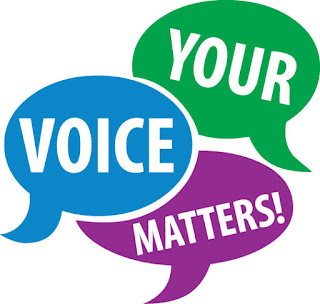Your
Feedback has Profound Value
 We eat, sleep, and breathe UVP. We know what programs
look like on the ground and the names of all the VHTs. We see the same faces
when we go to the village and we have relationships with staff members at all
the local health centers and the Iganga District offices. We’re embracing
UVP all the time, so there are things we take for granted, things we intrinsically
know because of our intimacy with the work. It’s called the curse of knowledge –
once you learn something, it’s hard to remember how it feels to not know.
We eat, sleep, and breathe UVP. We know what programs
look like on the ground and the names of all the VHTs. We see the same faces
when we go to the village and we have relationships with staff members at all
the local health centers and the Iganga District offices. We’re embracing
UVP all the time, so there are things we take for granted, things we intrinsically
know because of our intimacy with the work. It’s called the curse of knowledge –
once you learn something, it’s hard to remember how it feels to not know.
The survey that many of you took last month helped
to illuminate ways we could talk out the work of UVP, the work you support, to
promote better understanding of what exactly is going on in villages in Iganga.
Here’s a couple tidbits we received from you.
Yes, you got all the questions right! If you ticked
the box indicating that trachoma education is one of UVP’s programs, that tells
us that we need to do a better job at highlighting program changes (we used to
implement trachoma awareness programming, but began focusing on
our other programs in 2009).
 Most respondents to the survey know that UVP provides
education in clean water (83%) and sanitation & hygiene (77%) and clean
water access (75%). What surprised us is that most people don’t know that, in
addition to malaria education, we provide malaria testing and treatment (only 35%
knew this). And while many people (68%) know UVP provides HIV education, less
than half (47%) know that HIV testing and counseling coincide with that
education.
Most respondents to the survey know that UVP provides
education in clean water (83%) and sanitation & hygiene (77%) and clean
water access (75%). What surprised us is that most people don’t know that, in
addition to malaria education, we provide malaria testing and treatment (only 35%
knew this). And while many people (68%) know UVP provides HIV education, less
than half (47%) know that HIV testing and counseling coincide with that
education.
We learned that the term ‘public health’ is ambiguous and broad –
it can mean many different things to many different people. The largest
majority of people categorized it as required, useful, or necessary (23%),
followed by a community concern (17%), and finally as general health or
non-descript health terms (15%). We could do a better job at painting a picture
of what public health means, particularly in rural Ugandan villages.
 We also learned that it is
difficult to determine what UVP is directly responsible for due to our close
ties with other organizations. So, our job is
to better communicate those things to you! While we’re making adjustments in
our communication, feel free to reach out to us if there is something that you
really like, something you learned, or even something that left a bad taste in
your mouth (something you didn’t like). Please be gentle, we really do take
your comments to heart!
We also learned that it is
difficult to determine what UVP is directly responsible for due to our close
ties with other organizations. So, our job is
to better communicate those things to you! While we’re making adjustments in
our communication, feel free to reach out to us if there is something that you
really like, something you learned, or even something that left a bad taste in
your mouth (something you didn’t like). Please be gentle, we really do take
your comments to heart!
And finally, a heartfelt thank you! Because you took the time to provide us with your
input, we can provide better education about what public health looks like and
the real impacts it has to rural communities in Iganga.
Hugs,
Kelly Child
Executive Director





